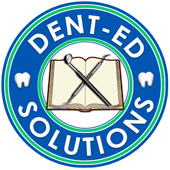Fall 2026 Continuing Education Programs for Dentists, Hygienists, and Assistants
*** Check back for Fall 2026 Courses end of July ***
In-Office Training
In-Office in-person courses are available for small or large groups in NJ and in certain areas of NY, PA, CT, and DE, depending on distance and number of attendees. Longer distances (3 hours or more away from the Passaic County area in NJ) requires groups of 12 or more (unless doing via Zoom) for any in-person course.
CPR for Healthcare Providers:
(4 credits) - Cost: $97/person plus travel expenses
First Aid:
(4 credits) - Cost: $97/person (plus travel expense if applicable*)
OSHA & Bloodborne Pathogen Standard Refresher Course:
(3 credits) - Cost: $79/person plus travel expenses
Updates and Reminders of Infection Control in Dentistry:
(3 credits) - Cost: $79/person plus travel expenses
Medical Emergencies in the Dental Office Refresher Course:
(3 credits) - Cost: $79/person plus travel expenses
Spanish for Dental Professionals:
(3 credits) - Cost: $79/person (plus travel expenses if applicable*)
CPR & First Aid training are in-person only, all other courses can be scheduled online via Zoom with no travel expenses.
(There is a minimum of 4 people for any private course, whether scheduling via Zoom or in-person.)
* Fees for travel expenses (for any in-person course) will be calculated based on mileage rates.
Other courses are also offered.
Contact us for a quote, info, and availability. Leave a message at: (973) 777-9600 or e-Mail us at: support@Dent-EdSolutions.com
Payment Method:


